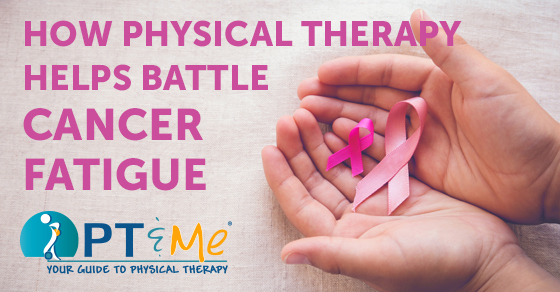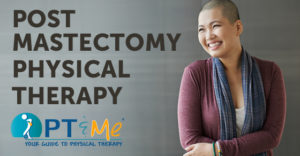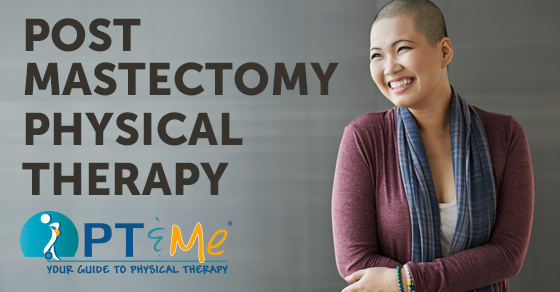
Should you Consider a Physical Therapy Cancer Fatigue Program?
Cancer treatments are rigorous and can take a toll on the body. If you are feeling tired all the time you’re not alone. The number one complaint of cancer patients, affecting 78% to 96% of those undergoing treatment, is cancer related fatigue(CRF). The goal in Physical Therapy is to help you become as independent as possible. Anyone who experiences signs and symptoms of pain or loss of function would benefit from an individualized physical therapy program.
Physical therapy can help you recover from:
- Chronic pain
- Leg pain
- Shortness of breath after light activity
- Difficulty walking short distance
- Difficulty performing daily tasks
- Extreme weariness and tiredness
- Difficulty paying attention or concentrating
What to Expect from A Physical Therapy Cancer Fatigue Program
Licensed Physical Therapists provide specialized therapeutic services that address the needs of CRF patients. Therapy sessions last approximately thirty minutes to one hour, depending on the patient’s tolerance. The average number of visits per week is 2-3. The physical therapy program is concurrent with cancer therapy and may last throughout the entire treatment phase. Most programs require a thorough physical therapy evaluation and a team approach with your physician is maintained.
Consider it a stepping stone approach towards your recovery.
- Address pain—which in turn can alleviate fatigue
- Use non-drug based treatments such as physical modalities:
– Soft tissue & joint mobilization
– TENS
– Heat/Cold - Coach patient on how to exercise
- Alleviate musculoskeletal dysfunction
- Improve posture
- Combat effects of bed rest
- Help to maintain muscle strength and flexibility, and restore muscle balance
- Help to decrease depression by increasing endorphins
- Improve balance
- Improve endurance
- Core body strengthening

The Motivation Behind a Cancer Recovery Program
From a physical therapy perspective, one of the main reasons for helping cancer patients comes from seeing individuals for pain problems who were S/P cancer and chemo/radiation. When asked about their the post-treatment care, they said that either; there was none provided, or that they got a few sessions with a lymphedema nurse. Their fatigue and pain symptoms were not addressed.
In looking at what was offered in the community (with the exception of lymphedema nurses) there appeared to be no one addressing the cancer patients—once medical treatment had been completed.
Previous advice for cancer patients was often to get more rest and avoid activities that are physically challenging. Recent studies have shown that exercise was found to be effective in preventing or reducing CRF. No adverse effects of exercising have been reported. Identified as “remarkably underutilized”, exercise is one of the few interventions suggested to diminish CRF and other psychosocial symptoms. If you are struggling to regain your strength and endurance talk to your physical therapist and see if they offer a cancer-related fatigue program that can help you get back to doing the things you enjoy.
Information Provided by PTandMe Physical Therapy Partner, Advance Rehabilitation. Advance Rehabilitation has locations throughout GA and Northern FL. More information about Advance Rehabilitation can be found on their website at www.advancerehab.com.
For more information on cancer-related physical therapy programs click here:





